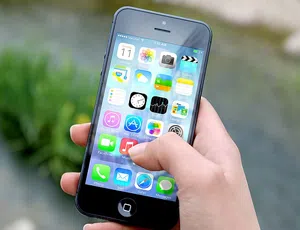This fall, as I traveled around the country giving presentations to clients and prospects, I've noticed an increase in the amount of people taking out a smartphone in the middle of our meeting to send or receive an email or text.
After a long week on the road, I contemplated the situation over an adult beverage on the flight home. I came up with three possibilities.
The first possibility is our presentation and subject matter missed the mark and didn't contain value to our audience … they were bored. I convened a group of advisors, showed them our research, factors impacting contractors (the audience our advertisers want to reach) and finally the actual presentation. All said, they were impressed with the value of the information and the quality of the physical presentation.
The second possibility is, perhaps my presentation skills are not as good as I thought. I broke out the video camera and practiced. Pretty good actually, but this technique always shows me there is room for improvement. For those of you managing a sales team — which is all of you — try using this tool. There is nothing easier and more beneficial than replaying your sales presentation on video.
The third possibility is that people have become unaware of their surroundings and they have become too attached to their smartphones. This theory seemed to have the most traction, so I typed a few searches into Google. One of the best was the article "Why Successful People Never Bring Smartphones Into Meetings" by Kevin Kruse, a contributor to Forbes. His column is based on research conducted by the University of Southern California's Marshall School of Business: Perceptions of Civility for Mobile Phone Use in Formal and Informal Meetings.
The researchers conducted a nationwide survey of 554 full-time working professionals earning more than $30K and working in companies with at least 50 employees. They asked a variety of questions about smartphone use during meetings and found:
- 86 percent think it's inappropriate to answer phone calls during meetings.
- 84 percent think it's inappropriate to write texts or emails during meetings.
- 66 percent think it's inappropriate to write texts or emails even during lunches offsite.
- The more money people make, the less they approve of smartphone use.
The study also found that Millennials are three times more likely than those over the age of 40 to think smartphone use during meetings is okay, which is ironic considering Millennials are highly dependent upon the opinions of their older colleagues for career advancement ("The Next Generation of Decision Makers," HVACR Business May 2015, pg. 5).
Millennials have the lowest self-awareness in the workplace, making them unlikely to see that smartphone use in meetings is harming their careers. This wasn't my audience, however, as I was presenting mostly to Baby Boomers and a few Gen Xers.
I looked deeper into the research and here is why so many people find smartphone use in meetings to be inappropriate — and what it says about anyone who participates in this behavior. Offenders show:
Lack of respect. You consider the information on your smartphone to be more important than the conversation at hand, and you view people outside of the meeting to be more important than those sitting right in front of you.
Lack of attention. You're unable to stay focused on one thing at a time.
Lack of listening. You aren't practicing active listening, so no one around you feels heard.
Lack of power. You're similar to a modern-day Pavlovian dog, who responds to the whims of others through the buzz of your smartphone.
Lack of self-awareness. You don't understand how ridiculous your behavior looks to other people.
Lack of social awareness. You don't understand how your behavior affects those around you.
The findings are a perfect bulls eye. Unfortunately, I won't be calling out the customers or prospects exhibiting this rude, deficit attention behavior, after all they sign the orders. Within your company, however, you may want to make use of this column and post it in a prominent space for all to see.
Kruse suggests being clear with what you expect of others in meetings. He also had a unique suggestion: Take a page out of the Old West and put a basket by the conference room door with an image of a smartphone and the message, "Leave your guns at the door."
Think how fun it would be to watch those Pavlovian dogs convulse as the basket of smartphones vibrate into oblivion in the back of the conference room.






